Effective Dua and Spiritual Shields for Victory Over Enemies
Summary: This article discusses powerful supplications (duas) recommended for spiritual protection and victory against enemies, particularly focusing on the secrets and virtues of the “Five Qaf Verses.” Emphasizing the importance of seeking refuge in Allah, it offers spiritual shields a believer should equip themselves with in the face of difficulties, along with advice based on authentic sources, including the Arabic texts, transliterations, and meanings of the relevant verses.
- Effective Dua and Spiritual Shields for Victory Over Enemies
- The Concept of Enmity in Islam and the Importance of Patience
- The Power of Dua and Seeking Refuge in Allah
- The Five Qaf Verses: A Spiritual Shield
- The Historical Place and Narrations of the Five Qaf Verses
- The Five Qaf Verses and Their Special Dua
The Concept of Enmity in Islam and the Importance of Patience
In our life journey, as part of our trials, we may sometimes encounter difficulties, disagreements, and even enmity. Our stance as believers is crucial when facing these situations arising from jealousy, ambition, misunderstanding, or other reasons. Islam primarily advises us patience, forgiveness, and reliance on Allah (tawakkul). Our Lord states in the Holy Quran:
وَلَمَنْ صَبَرَ وَغَفَرَ اِنَّ ذٰلِكَ لَمِنْ عَزْمِ الْاُمُورِ
Transliteration: Wa la man sabara wa ghafara inna dhalika la min ‘azmil umoor.
Meaning: “…And whoever is patient and forgives – indeed, that is of the matters [requiring] determination.” (Surah Ash-Shura, Verse 43)
However, we also have the right to legitimate self-defense and the responsibility to seek our rights when faced with oppression and injustice. Enmity can manifest not only between individuals but also as the whispers of our own nafs (ego) and Satan. Our greatest weapon against these internal and external enemies is turning to our Lord, seeking His help, and taking refuge in His infinite power. Patience and dua are the believer’s strongest supports in these challenging trials. We must remember that with every hardship comes ease:
فَاِنَّ مَعَ الْعُسْرِ يُسْرًاۙ اِنَّ مَعَ الْعُسْرِ يُسْرًاۜ
Transliteration: Fa inna ma’al ‘usri yusra. Inna ma’al ‘usri yusra.
Meaning: “For indeed, with hardship [will be] ease. Indeed, with hardship [will be] ease.” (Surah Al-Inshirah, Verses 5-6)
And Allah is with the patient:
يَٓا اَيُّهَا الَّذ۪ينَ اٰمَنُوا اسْتَع۪ينُوا بِالصَّبْرِ وَالصَّلٰوةِۜ اِنَّ اللّٰهَ مَعَ الصَّابِر۪ينَ
Transliteration: Yaa ayyuhal ladheena aamanus ta’eenoo bis sabri was Salaah; innal laaha ma’as saabireen.
Meaning: “O you who have believed, seek help through patience and prayer. Indeed, Allah is with the patient.” (Surah Al-Baqarah, Verse 153)
The Power of Dua and Seeking Refuge in Allah
Dua (supplication) is one of the most special moments when the servant communicates directly with their Lord, confesses their helplessness, and seeks refuge in His infinite mercy and power. Prophet Muhammad (peace be upon him) emphasized the importance of dua in a hadith:
الدُّعَاءُ مُخُّ الْعِبَادَةِ
Transliteration: Ad-du’aau mukkhul ‘ibaadah.
Meaning: “Dua is the essence of worship.” (Tirmidhi, Da’awat, 1)
Especially seeking protection through dua from the evil of enemies, the envy of the jealous, and all kinds of harm is the believer’s most natural right and most effective spiritual shield.
Allah Almighty has promised to answer the supplications of His servants:
وَقَالَ رَبُّكُمُ ادْعُون۪ٓي اَسْتَجِبْ لَكُمْۜ
Transliteration: Wa qaala Rabbukum ud’ooneee astajib lakum.
Meaning: “And your Lord says, “Call upon Me; I will respond to you…” (Surah Ghafir, Verse 60)
This verse gives us hope and courage. No matter how great the difficulties we face, the power and mercy of our Lord are above everything. When we turn to Him sincerely and present our situation, His help and protection will reach us.
The Five Qaf Verses: A Spiritual Shield
Islamic scholars and gnostics have indicated that some verses in the Holy Quran carry special secrets and virtues. Among these are the “Five Qaf Verses,” five verses each containing ten instances of the letter “Qaf” (ق). Four of these verses are found sequentially in Surahs Al-Baqarah, Al-Imran, An-Nisa, and Al-Ma’idah, while the fifth is in Surah Ar-Ra’d. (Note: The narration that each verse contains 10 Qaf letters is information related to the science of ‘Havas’ [knowledge of the hidden properties of letters and verses] and is not a generally accepted classification in the science of Tafsir [Quranic exegesis].)
It is narrated that these verses possess significant properties (hassas), especially for achieving victory over enemies in times of war and for protection against the evil of the envious and jealous. (The sources for such information are generally works related to the science of Havas or experiential transmissions. For example, similar information can be found in the works of Imam Ghazali or more specific Havas books).
The spiritual power of these verses is considered so high that whoever writes or recites them according to the proper method, with Allah’s permission, is hoped to attain the following benefits:
- Victory Over Enemies: Provides spiritual superiority in battles or against those who harbor enmity. It is believed to bring invincibility and victory when inscribed on the flags of armies.
- Protection from Envy and Evil Eye: Acts as a protective shield against the envy of jealous people and the harm of the evil eye (nazar).
- Awe and Respect: Recited or carried to gain respect in the presence of people of rank and authority, to have one’s words heeded, and to possess a dignified presence. It inspires love and respect towards the person.
These verses are just one example of the infinite wisdom of Allah’s words and are considered an undoubted spiritual treasure.
The Historical Place and Narrations of the Five Qaf Verses
There are also historical narrations regarding the virtues of these blessed verses. It is told that Sultan Mahmud of Ghazni (may Allah have mercy on him), one of the famous Turkic rulers, learned the secrets of these Five Qaf Verses from Sheikh Musa as-Sadrani. According to the narration, Sheikh Musa as-Sadrani taught Sultan Mahmud how to carry these verses during campaigns and in times of peace, and how to benefit from them in battles. It is narrated that Sultan Mahmud, by the blessing of these verses, was successful in many conquests, including India, his army marched from victory to victory, and he received Allah’s help wherever he turned. (The source of this narration is generally hagiography books or historical accounts; deeper research is needed for precise attribution).
Furthermore, it is narrated from Abdullah Ibn Mas’ud (may Allah be pleased with him), one of the great companions, that the Messenger of Allah (peace be upon him) used to recite these Five Qaf Verses both in times of peace (hadar) and during campaigns (safar), especially to gain spiritual superiority over disbelievers and hypocrites. Allah Almighty would thus aid His Prophet and grant him opportunities for conquests. (It is important to specify the exact hadith source for this narration, but it is established that the Prophet (pbuh) sought refuge and help through Quranic verses. See, for example, Bukhari, Fada’il al-Qur’an; Muslim, Salat al-Musafirin).
These narrations show that the Five Qaf Verses were seen not only for individual protection but also as spiritual support in social and military successes.
The Five Qaf Verses and Their Special Dua
There is also a special dua recited along with the Five Qaf Verses or for the sake of these verses. This dua is recited to attract the spiritual power of the verses and to make specific requests from Allah. Here is that dua and the relevant parts:
Note: The dua text provided below is a formulation found in specific Islamic traditions and Havas practices. Some names of angels or spiritual beings (Hefkalzâîl, Ceğsekeyaîl, etc.) and special phrases (Kecağzameheyuş) within it are specific to this tradition. Acceptance of the dua is from Allah, and the most acceptable duas are those found in the Quran and Sunnah. When reciting this dua, the intention must be sincere, and help must be sought solely from Allah.
Text of the Dua (Arabic, Transliteration, and Meaning):
- بِسْمِ اللّٰهِ الرَّحْمٰنِ الرَّح۪يمِ
- Bismillahirrahmanirrahim.
- In the name of Allah, the Most Gracious, the Most Merciful.
- اَلَمْ تَرَ اِلَى الَّذ۪ينَ خَرَجُوا مِنْ دِيَارِهِمْ وَهُمْ اُلُوفٌ حَذَرَ الْمَوْتِۖ فَقَالَ لَهُمُ اللّٰهُ مُوتُوا ثُمَّ اَحْيَاهُمْۜ اِنَّ اللّٰهَ لَذُو فَضْلٍ عَلَى النَّاسِ وَلٰكِنَّ اَكْثَرَ النَّاسِ لَا يَشْكُرُونَ
- Elem tera ilal ladheena kharajoo min diyaarihim wa hum uloofun hazaral mawti faqaala lahumul laahu mootoo summa ahyaahum; innal laaha lazoo fadlin ‘alan naasi wa laakinna aksaran naasi laa yashkuroon. (Surah Al-Baqarah, Verse 243 – Considered one of the verses narrated to contain 10 Qafs)
- (Meaning: Have you not considered those who left their homes in many thousands, fearing death? Allah said to them, “Die”; then He restored them to life. And indeed, Allah is full of bounty to the people, but most of the people do not show gratitude.)
- اَلَمْ تَرَ اِلَى الْمَلَاِ مِنْ بَن۪ٓي اِسْرَٓاء۪يلَ مِنْ بَعْدِ مُوسٰٓىࣗ اِذْ قَالُوا لِنَبِيٍّ لَهُمُ ابْعَثْ لَنَا مَلِكًا نُقَاتِلْ ف۪ي سَب۪يلِ اللّٰهِۜ قَالَ هَلْ عَسَيْتُمْ اِنْ كُتِبَ عَلَيْكُمُ الْقِتَالُ اَلَّا تُقَاتِلُواۜ قَالُوا وَمَا لَـنَٓا اَلَّا نُقَاتِلَ ف۪ي سَب۪يلِ اللّٰهِ وَقَدْ اُخْرِجْنَا مِنْ دِيَارِنَا وَاَبْنَٓائِنَاۜ فَلَمَّا كُتِبَ عَلَيْهِمُ الْقِتَالُ تَوَلَّوْا اِلَّا قَل۪يلًا مِنْهُمْۜ وَاللّٰهُ عَل۪يمٌ بِالظَّالِم۪ينَ
- Elem tera ilal malai mim Baneee Israaa’eela mim ba’di Moosaaa iz qaaloo li Nabiyyil lahumub ‘as lanaa malikan nuqaatil fee sabeelil laah; qaala hal ‘asaitum in kutiba ‘alaikumul qitaalu allaa tuqaatiloo qaaloo wa maa lanaaa allaa nuqaatila fee sabeelil laahi wa qad ukhrijnaa min diyaarinaa wa abnaaa’inaa falammaa kutiba ‘alaihimul qitaalu tawallaw illaa qaleelam minhum; wallaahu ‘aleemum biz zaalimeen. (Surah Al-Baqarah, Verse 246 – Considered one of the verses narrated to contain 10 Qafs)
- *(Meaning: Have you not considered the assembly of the Children of Israel after [the time of] Moses when they said to a prophet of theirs, “Send to us a king, and we will fight in the way of Allah”? He said, “Would you perhaps refrain from fighting if fighting was prescribed for you?” They said, “And why should we not fight in the cause of Allah when we have been driven out from our homes and from our children?” But when fighting was prescribed for them, they turned away, except for a few of
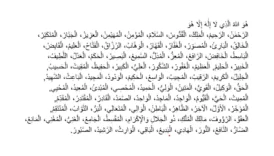

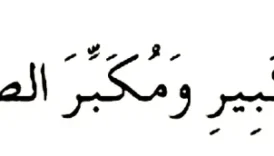
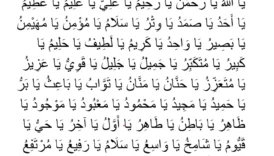
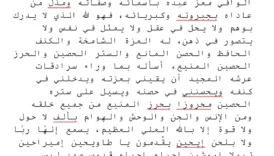
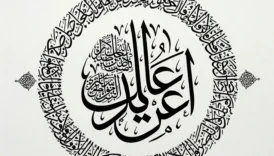
Very good https://t.ly/tndaA
Very good https://t.ly/tndaA
Awesome https://t.ly/tndaA
Awesome https://t.ly/tndaA
Awesome https://urlr.me/zH3wE5
Very good https://rb.gy/4gq2o4
Awesome https://rb.gy/4gq2o4
Very good https://rb.gy/4gq2o4
Very good https://rb.gy/4gq2o4
Very good https://rb.gy/4gq2o4
Good https://rb.gy/4gq2o4
Good https://rb.gy/4gq2o4
Good https://is.gd/N1ikS2
Good https://is.gd/N1ikS2
Very good https://is.gd/N1ikS2
Very good https://is.gd/N1ikS2
Very good https://is.gd/N1ikS2
Awesome https://is.gd/N1ikS2
Very good https://is.gd/N1ikS2
Awesome https://is.gd/N1ikS2
Awesome https://is.gd/N1ikS2
Good https://is.gd/N1ikS2
Very good https://is.gd/N1ikS2
Very good https://is.gd/N1ikS2
Very good https://is.gd/N1ikS2
Good https://is.gd/N1ikS2
Awesome https://is.gd/N1ikS2
Very good https://is.gd/N1ikS2
Very good https://is.gd/N1ikS2
Very good https://is.gd/N1ikS2
Awesome https://is.gd/N1ikS2
Good https://is.gd/N1ikS2